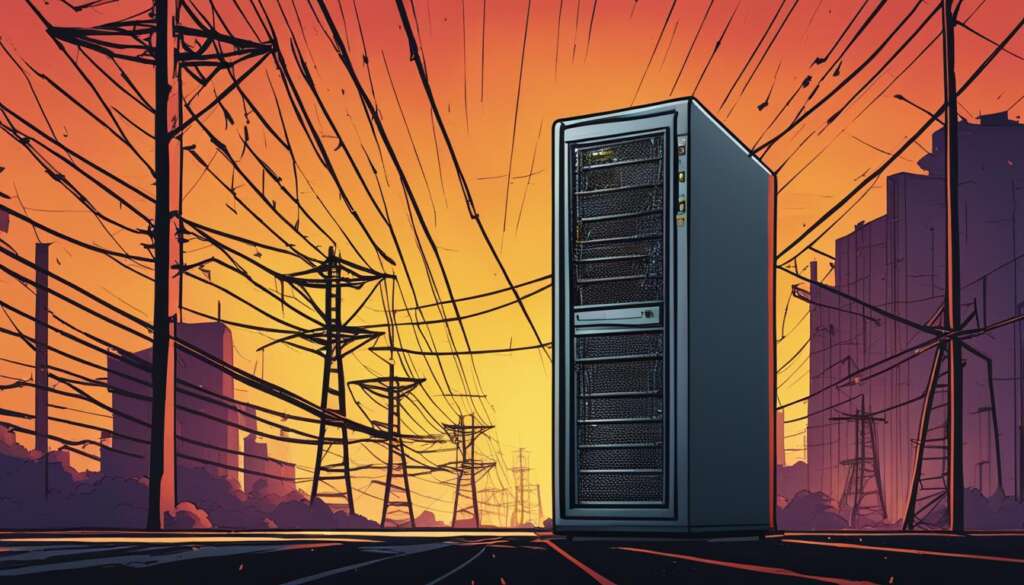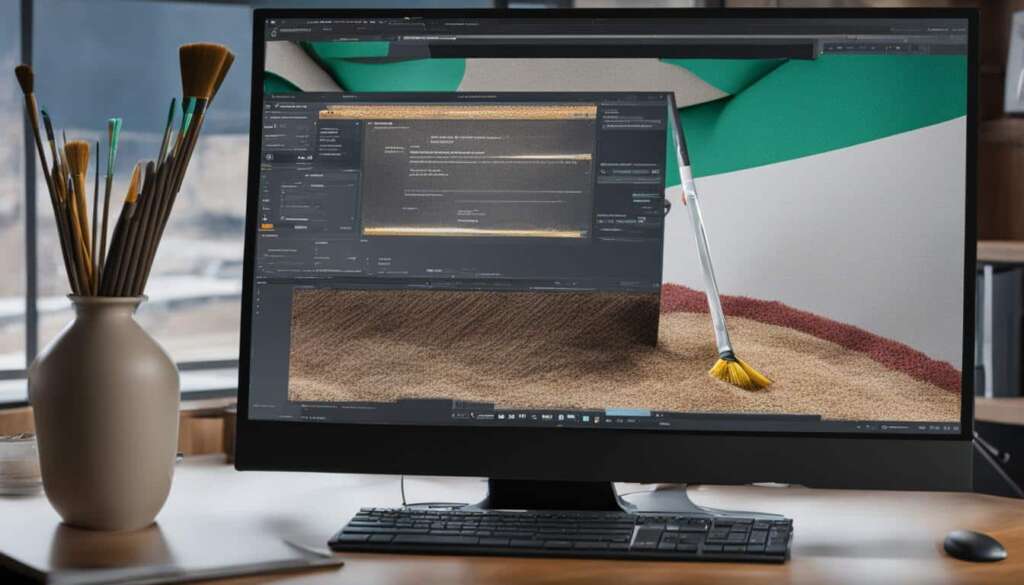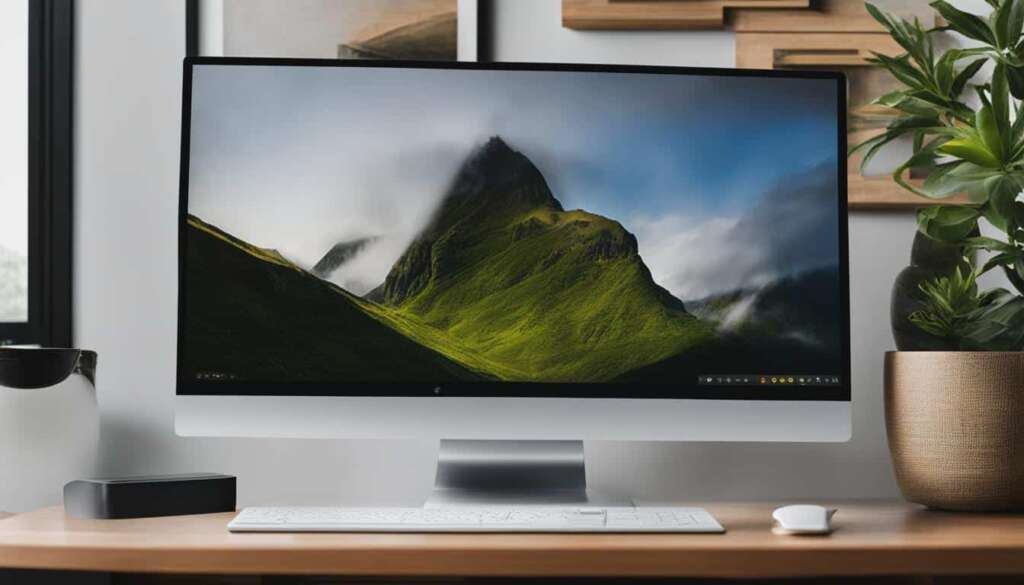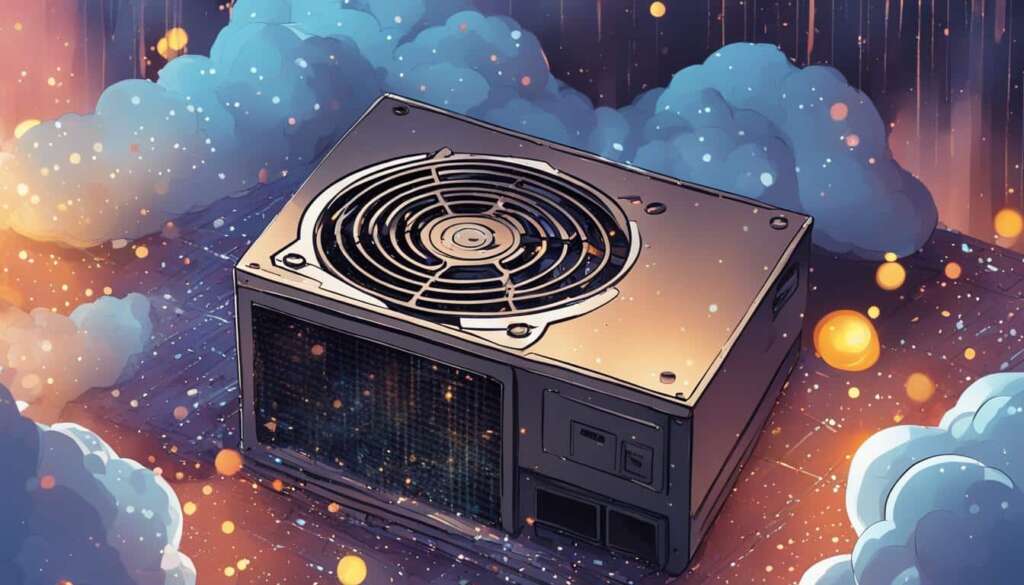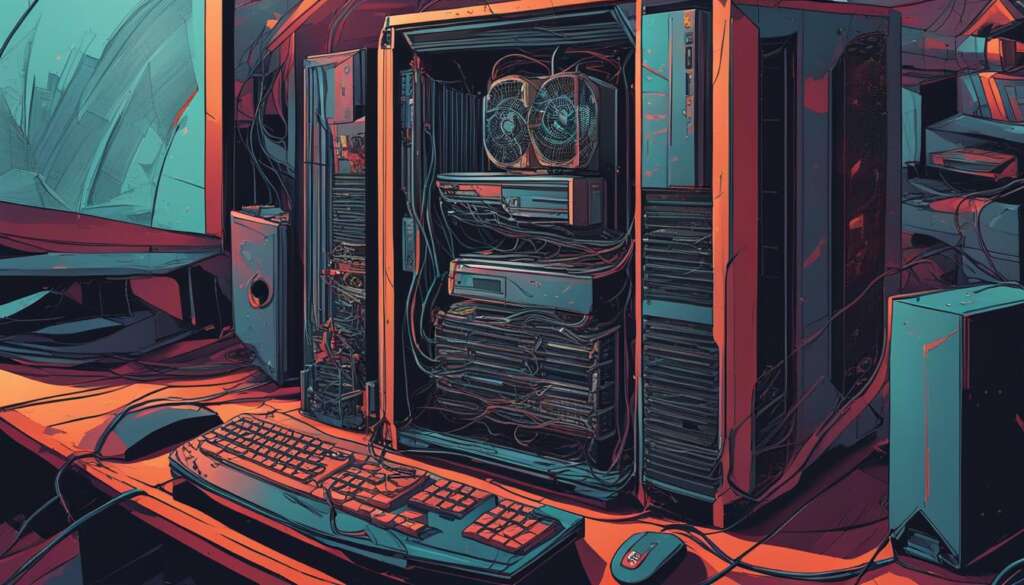Table of Contents
If you’ve noticed a persistent and irritating buzzing noise coming from your PC, you’re not alone. Many computer users have experienced this issue, and it can be quite frustrating. However, the good news is that there are several potential causes for this problem, and with some troubleshooting, you can often identify and resolve the issue.
The first step in troubleshooting a buzzing noise is to determine the specific type of noise you’re hearing. This can help narrow down the possible causes and guide your troubleshooting efforts. Let’s explore some common scenarios and their potential fixes.
If the buzzing noise seems to come from within the PC case and is accompanied by vibrations or rattling sounds, this could indicate a loose component or an obstruction interfering with the fans. It’s important to check for loose screws or cables within the case and remove any obstructions from the fans.
In some cases, the buzzing noise may be caused by the fans themselves. Dust accumulation or failing fan bearings can result in increased noise levels. To address this, you can clean the fans and heatsinks using compressed air and a lint-free cloth. If the noise persists, it may be necessary to replace the fan with a new one.
Another potential culprit is a failing hard drive. If you notice a high-pitched buzzing sound accompanied by irregular ticking or grinding noises, it’s crucial to run disk checking applications to test the health of your hard drive. If issues are detected, consider backing up your data and replacing the hard drive to prevent data loss.
Lastly, a buzzing sound coming from the power supply unit could indicate a potential problem. If the buzzing is persistent and coming from the power supply, it’s recommended to replace it with a high-quality unit to ensure the safety and reliability of your PC.
In conclusion, there are several potential causes for a buzzing noise in your PC, ranging from loose components to failing hardware. By identifying the specific type of buzzing sound and following the appropriate troubleshooting steps, you can often fix the issue and enjoy a quieter computing experience.
Troubleshooting Rattling, Vibration, and Buzzing Sounds
If you’re hearing a buzzing sound that sounds like something is vibrating or rattling inside your PC, it could be due to a loose screw or cable that’s moving freely or stuck in a fan. This can be a common issue that many PC users encounter, but fortunately, it’s often fixable with a few simple steps.
One of the first things you can do is tilt your PC slightly and listen for any loose objects rattling around the case. Sometimes, screws or cables can come loose and bounce around, causing the rattling sound. By identifying and securing any loose components, you can eliminate this source of noise.
Another common culprit for rattling sounds is fan obstructions. Dust, debris, or small objects can get trapped in the fans and create vibrations or rattling noises. To address this issue, you should carefully inspect your PC’s fans and remove any obstructions you find. Remember to power off your PC and unplug it before taking any action.
If you notice that a cable or wire is stuck in one of the fans, gently remove it to prevent further damage and eliminate the buzzing noise. Be cautious not to damage any components or ports while doing this.
In some cases, you may need to replace a fan if it’s damaged or not functioning properly. Luckily, fans are usually easy to replace and can be found online or at computer hardware stores.
Overall, troubleshooting rattling, vibration, and buzzing sounds in your PC involves identifying loose components, removing obstructions, and, if necessary, replacing damaged fans. By taking these steps, you can restore peace and quiet to your computer and enjoy a smoother computing experience.
Dealing with Loud Fans and Buzzing Noises
If you’ve noticed that your computer’s fans are producing unusually loud noises accompanied by a constant buzzing sound, there are a few potential causes that you can address. The most common reasons for this issue are dust accumulation and failing fan bearings. Luckily, there are steps you can take to mitigate these problems and restore your computer’s quiet operation.
To begin, it’s important to clean your fans and heatsinks, as dust can accumulate over time and impede proper rotation, causing the fan to work harder and generate more noise. Here’s a step-by-step guide to effectively clean your computer’s fans:
- Power off your computer and unplug it from the power source to ensure safety.
- Open the computer case following the manufacturer’s instructions.
- Locate the fans and heatsinks within the case.
- Use compressed air to blow away dust and debris from the fans and heatsinks. Ensure the airflow is directed away from the internal components to prevent further complications.
- After removing loose dust, gently wipe the fans and heatsinks with a lint-free cloth to remove any remaining particles.
- Close the computer case and reconnect all the cables before powering it back on.
If cleaning the fans and heatsinks doesn’t resolve the loud fan noise and buzzing sound, it’s possible that the fan bearings have worn out, and a replacement may be necessary. Before purchasing a new fan, identify the specific fan model to ensure compatibility with your computer’s case and cooling requirements. You can typically find this information in the computer’s documentation or by searching online using the computer’s make and model.
Once you have the replacement fan, follow these steps to install it:
- Power off your computer and unplug it from the power source.
- Open the computer case.
- Disconnect the power cable and any other cables connected to the fan.
- Remove the screws or fasteners holding the old fan in place.
- Take out the old fan carefully.
- Place the new fan in the same location and secure it with screws or fasteners.
- Reconnect the power cable and any other cables you disconnected earlier.
- Close the computer case and plug in the power cable.
- Power on your computer and listen for any buzzing sounds. The new fan should operate silently and efficiently.
By following these steps, you can effectively address loud fan noise and fix the buzzing sound caused by dust accumulation or failing fan bearings. Ensure that you regularly clean your computer to prevent the recurrence of these issues and maintain optimal performance.
Expert Tip:
If you’re uncertain about disassembling your computer or replacing the fan yourself, it’s advisable to seek assistance from a qualified technician. They can help diagnose the issue and perform any necessary repairs or replacements with proper expertise.
Understanding High-Pitched Buzzing and Grinding Noises
A high-pitched buzzing sound coming from your computer can be quite unsettling. This type of noise is often caused by a phenomenon known as coil whine. Coil whine occurs when certain components vibrate at specific frequencies, producing a high-pitched sound. While coil whine itself is not necessarily a sign of a malfunctioning system, it can be a source of annoyance for many users.
However, if the buzzing sound is accompanied by irregular ticking or grinding noises, it may indicate a more serious issue, such as a failing hard drive. When a hard drive starts to fail, it can produce these abnormal sounds as the internal components struggle to function properly. In such cases, it is crucial to take action promptly to prevent potential data loss.
To tackle the issue, it is recommended to run disk checking applications to assess the health of your hard drive. These applications can help identify any potential errors or issues that might be causing the grinding noise. If the tests reveal significant problems, it may be necessary to replace the hard drive with a new one to ensure the safety of your data.
Furthermore, it’s important to note that buzzing noises can also originate from the power supply unit. If you suspect the buzzing is coming from the power supply, it is advisable to replace it with a high-quality unit. Investing in a reliable power supply not only eliminates the buzzing sound but also helps protect your computer from potential damage.
FAQ
Why is my PC making a buzzing noise?
There could be several reasons for a buzzing sound coming from your computer. Some common causes include loose components, fan-related issues, a failing hard drive, or problems with the power supply.
How can I troubleshoot rattling, vibration, and buzzing sounds in my PC?
If you’re hearing a buzzing sound that sounds like something is vibrating or rattling inside your PC, it may be due to a loose screw or cable stuck in a fan. Tilt your PC and listen for loose objects rattling around the case. Check for obstructions in the fans and remove them if necessary.
How can I deal with loud fans and buzzing noises in my computer?
Loud fan noise and buzzing sounds can be caused by dust accumulation or failing fan bearings. Clean the fans and heatsinks using compressed air and a lint-free cloth. If the noise persists, consider replacing the fan with a new one.
What do high-pitched buzzing and grinding noises indicate in a computer?
High-pitched buzzing sounds could be caused by coil whine, which occurs when components vibrate at specific frequencies. If there are irregular ticking or grinding sounds, it may indicate a failing hard drive. Run disk checking applications to test the health of the drive and consider replacing it if necessary. If the buzzing is coming from the power supply, it’s recommended to replace it with a high-quality unit.

